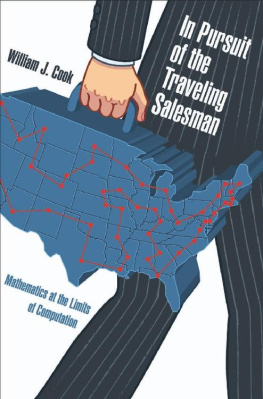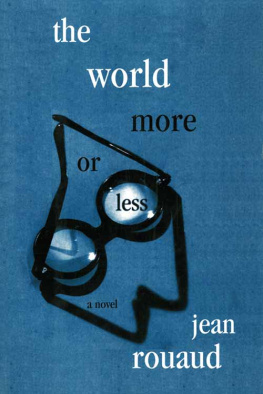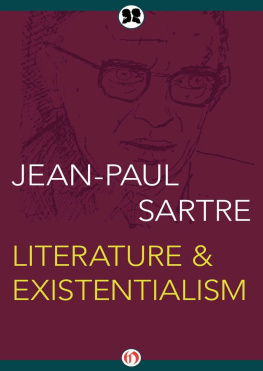Jean Rouaud - Of Illustrious Men
Here you can read online Jean Rouaud - Of Illustrious Men full text of the book (entire story) in english for free. Download pdf and epub, get meaning, cover and reviews about this ebook. year: 2011, publisher: Arcade Publishing, genre: Prose. Description of the work, (preface) as well as reviews are available. Best literature library LitArk.com created for fans of good reading and offers a wide selection of genres:
Romance novel
Science fiction
Adventure
Detective
Science
History
Home and family
Prose
Art
Politics
Computer
Non-fiction
Religion
Business
Children
Humor
Choose a favorite category and find really read worthwhile books. Enjoy immersion in the world of imagination, feel the emotions of the characters or learn something new for yourself, make an fascinating discovery.
- Book:Of Illustrious Men
- Author:
- Publisher:Arcade Publishing
- Genre:
- Year:2011
- Rating:5 / 5
- Favourites:Add to favourites
- Your mark:
- 100
- 1
- 2
- 3
- 4
- 5
Of Illustrious Men: summary, description and annotation
We offer to read an annotation, description, summary or preface (depends on what the author of the book "Of Illustrious Men" wrote himself). If you haven't found the necessary information about the book — write in the comments, we will try to find it.
Of Illustrious Men — read online for free the complete book (whole text) full work
Below is the text of the book, divided by pages. System saving the place of the last page read, allows you to conveniently read the book "Of Illustrious Men" online for free, without having to search again every time where you left off. Put a bookmark, and you can go to the page where you finished reading at any time.
Font size:
Interval:
Bookmark:
Jean Rouaud
Of Illustrious Men
I
IN THE MIDDLE OF THE afternoon he had climbed up on the corrugated iron roof of the shed where the clothes are dried to saw off the branches of the plum tree that had become entangled in the telephone wires after a winter storm. This was a wise precaution. The next strong wind might well bring the whole thing down, temporarily cutting us off from the outside world. Not that Random was situated in an out-of-the-way valley far removed from civilization, but thanks to our telephone we belonged to a sort of caste, a sort of local aristocracy. The country people, who didnt yet possess phones and were reluctant to let the operator know the name of the person they were calling, had gotten into the habit of coming and phoning from our house rather than from the post office, giving us some sort of explanation of the snatches of their conversations, which we didnt even try to overhear but were certainly not going to pass on and distort. We took the greatest care to see that the office door was properly shut and to cover our ears so as not to be like the postmistress. The result was that we felt handicapped by the trust with which we were honored and didnt like to ask people to pay for their calls. But we valued this privilege.
In the winter months, the wind coming in from the Atlantic wasnt satisfied by simply bringing down our telephone wires. It also took the opportunity to deprive us of electricity. How long this lasted varied according to the extent of the damage, and it was sometimes hours before the current came on again. It takes time to mend a cable, to reerect a pole, to repair a transformer. If the house was suddenly plunged into darkness in the evening, we first checked that it was not simply our meter that was at fault. All we had to do was half open the door to the shop and glance through the big window. A streetlight attached to the house at roof level usually cast a cone of filtered light into the shadows. But if the power outage affected the whole district, all we saw was a black hole. Even when the village was enveloped in darkness, though, we could just make out the massive silhouette of the tall houses surrounding the square, and the more imposing one of the church. It looked like a ghost town, like London during the blitz, and we found ourselves trembling. We remembered hearing about the air raids over Nantes during the Second World War, when with all the lights doused the people had to play dead.
Every so often a car would appear at the brow of the hill leading down to the square, its headlights picking up the storm-tossed tops of the three Lombardy poplars planted in a triangle around the town pump, and then it would begin its rapid descent, for a fraction of a second lighting up the bottle of Saint-Raphal painted on the gable of the caftabac, before disappearing around the corner and once again plunging the town into gloomy silence. No one was more courageous than the solitary cyclist climbing up the hill in the teeth of the wind, swaying from side to side, zigzagging, the slender pencil of his headlight sweeping the road in front of him, its beam just penetrating the inky void, the red light on his rear mudguard still for a long time as he scaled the slope, then stopped, leaned over slightly, and continued at the pace of a pedestrian, pushing his bike by the handlebars. The reflectors on new models had recently become rectangular, and even in the dark this alone enabled us to put the rider down as one of the well-to-do. In local terms, of course, because the only people who treated themselves to new bicycles were those who would never have a car, being either too old, or women, few of whom were adventurous enough to face the derision incurred in aspiring to a drivers license.
Sometimes, too, a faint light piercing the darkness could be seen coming from old Maryvonnes window over her grocery store. As she had a habit of falling asleep over a book and wasting electricity while she was asleep ran counter to her sense of economy she had devised a method of getting her light from bits of candle, which she chopped up so that the wick went out of its own accord at the very moment she reckoned she would be able to read no longer. She could then drop off with an easy mind, glasses on her nose, nice and comfortable on her pillows, the book falling from her hands. She even claimed that sometimes, at dawn, she would continue her reading in the middle of a phrase, as if her sleep had lasted only for the twinkling of an eye. This scared all the neighbors, who imagined her burning to death, and them with her, and the whole district going up in a gigantic auto-da-fe. They tried hard to dissuade her: she was risking her life, she was ruining her eyes, she had to pay for the rent of her meter anyway, so the game wasnt worth the candle. But quick as a flash the crafty Maryvonne retorted, And whos going to pay for the electricity I use? As there were no volunteers, this gave weight to her argument. All the more so since her ancient method of lighting had the merit of costing very little. Given that she was in charge of the upkeep of the church, she was suspected of salvaging the bits of candle that remained stuck on the spikes with their wicks covered in melted wax.
On the day after a long power outage, she would peer over her glasses and pretend to be amazed. Oh, really? She hadnt noticed a thing. The little Voltairean smile at the corner of her lips was her way of getting her pride back after all the disagreeable remarks made about her. And to press the point: In the old days which were still hers to some extent we didnt have that kind of problem.
Nor did we. We had oil lamps. When we were quite sure that the whole village was in the same boat, we got them out of the cupboard under the stairs, taking a thousand precautions to keep the fragile glass cylinders upright so as not to risk spilling a single drop of the liquid on the lamp bases, where it would fill the house with its pungent stench. Mother never put the lamps away without carefully cleaning them and wrapping them in plastic bags, fastened with rubber bands to preserve them from the dust. The beauty of the lighting depended on their cleanliness.
When the first men domesticated fire, their faces could certainly not have looked more serious than ours. Striking matches to light the way, we escorted the lamps from the corridor to the kitchen until, with one in the middle of the table and the other near the stove, they provided all the feeble light they were capable of. A very gentle light, which projected our enlarged shadows on the walls and bound us closer together, while outside the wind was blowing a gale. Shrouded in this soothing twilight, we sat huddled together around the table, unable to take our eyes off the incandescent ring at the bottom of the glass chimney over the snakelike wick, which was soaking in the bluish reservoir in the shape of a squashed bulb. As if to warm ourselves, we held our hands up to this source of light and, as a way of playing with fire, soon improvised a little shadow theater. In a column titled Things To Do on Rainy Thursdays, our childrens magazines were always giving illustrated explanations of the way to go about it. But however hard we tried, no matter how we twisted our fingers, we never observed any progress from one time to the next. The duck looked just like the dog, the donkey like the rabbit, the elephant had to make do with a dangling forefinger for a trunk, and the camel lost count of its humps. As for the Indian chief, the only human being in our fabulous menagerie, his feathered headdress composed of five outstretched fingers made him look like a pincushion. In the end, we fell back on what we did best: the bird, which simply consisted of crossing your thumbs and clapping your hands to make slowly flapping wings. An indefinable bird, but at least it had the merit of taking flight when we stretched out our arms, like a dove that has just appeared out of a sleeve.
Font size:
Interval:
Bookmark:
Similar books «Of Illustrious Men»
Look at similar books to Of Illustrious Men. We have selected literature similar in name and meaning in the hope of providing readers with more options to find new, interesting, not yet read works.
Discussion, reviews of the book Of Illustrious Men and just readers' own opinions. Leave your comments, write what you think about the work, its meaning or the main characters. Specify what exactly you liked and what you didn't like, and why you think so.









